Environment (other)
Explore diverse environmental issues beyond conventional topics. Uncover insights into unique phenomena impacting ecosystems and human interaction dynamics.
91 articles

Updated
Updated
It is easy to feel helpless when it comes to protecting our world's ecosystems. Corporations and industries which pollute and destroy on a large scale can make our own contributions seem pointless. While it is true that individual responsibility will only get us so far in terms of conservation, it is not...
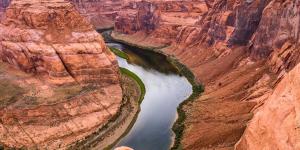
A canyon is a geographical formation characterized by a deep and relatively narrow valley with steep walls. Canyon formation occurs primarily by the erosive action of a river over millions of years. This landform is a type of relief that can be found in different parts of the world. They are particularly...
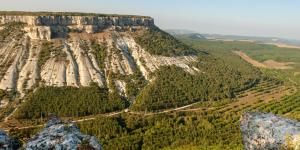
In geography, a plateau is a large geological structure which has a flat or gently undulating structure at least 500 meter above sea level. This highland landform is also known as a tableland or high plain. This is because they are a flat surface at heigh which mimics the basic structure of a table,...
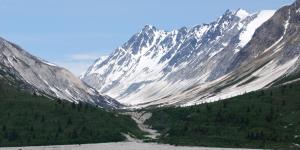
There are different types of valleys which differ due to their formation. Although most valleys are formed by erosion or tectonic movements, even these factors can be very different from each other. The resulting valleys take on their characteristic shape due to the nature of this erosion. If we see...
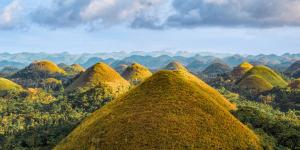
The field of topography is an important aspect of physical geography. It involves the study of the surface of landforms with a particular emphasis on elevation. A hill is a natural landform which is elevated from the area surrounding it. This means they don't have to start at sea level since some may only...

Climate study is a field within geography. Studied within this discipline are the overarching factors which determine climate and weather patterns around the globe. There are also small-scale phenomena that directly influence the environmental conditions of specific geographical areas. One of these is the...

Carbon sinks are systems that absorb and store carbon dioxide (CO₂) from the atmosphere. Known as sequestration, this is a process which can be carried out naturally or artificially. Their role is fundamental in the context of climate change, as they help reduce greenhouse gas concentrations. This makes...

A river valley is a landform characterized by a depression or basin of land formed by the erosion of a natural stream of water. Valleys are common geographical features, some of which have created some of the most beautiful vistas in nature. They are also very important ecosystems for various plant...
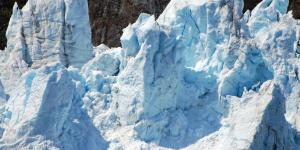
Seracs are large blocks of ice that form on glaciers , especially in areas with steep slopes or uneven terrain. They are formed by the fracture of ice due to internal stresses caused by the movement of the glacier. They are both extremely important in glaciology and dangerous for ecosystems. These blocks...

A ravine is an abrupt geographical feature generated on the surface of the ground that is charactertized by relatively steep sides and a narrow space between them. The formation of ravines has various causes, but water erosion is one of the most common. Tetonic activity can also influence ravine formation....

While heavy water is a type of water and shares the same chemical elements, the configuration of these elements gives it distinct properties to regular water. It derives its common name from the fact that the normal hydrogen atoms are replaced by the much heavier isotope of hydrogen known as deuterium....

Artificial intelligence has revolutionized multiple industrial sectors, with further innovation appearing at a staggering rate. The generation of capital, opportunities and solutions to various problems are exciting. They have the potential to benefit societies in many ways, especially in areas such as...
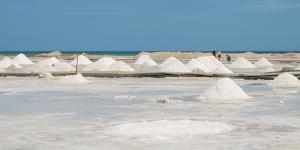
Also known as salt deserts or salt flats, salt pans are vast expanses of land which are covered by a layer of minerals, mostly in the form of sodium chloride salt. They are considered extreme environments since this concentrated amount of salt makes it very difficult for organisms to survive. Salt flats...

Limestone pavements are geological formations found in limestone terrain that create an exposed flat topography which has features caused by weathering of the rock. This weathering leads to grooves, cracks and cavities which create blocks known as clints which are separated by fissures known as grikes....

Artisanal mining, often practiced in small-scale, informal settings, plays a crucial role in the livelihoods of millions worldwide. However, its environmental impact is profound and far-reaching, affecting ecosystems, water sources, and local communities. From deforestation and soil degradation to toxic...

Asbestos is a naturally occurring mineral once widely used in construction and manufacturing due to its heat resistance and durability. However, asbestos exposure can have serious health consequences, leading to diseases like mesothelioma, lung cancer, and asbestosis. While its use has been heavily regulated...

Sinkholes are openings in the ground which are caused by the gradual or immediate collapse of the surface. While this can be a general sinkhole definition, there are many different types which can be found both in nature and in urban environments. Some sinkholes are caused by natural processes, but an increasing...
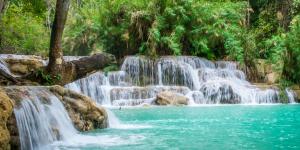
Water springs are one of nature’s most insteresting freshwater sources, emerging naturally from the ground due to underground water pressure. But how exactly do they form, and why are they so important? From supplying drinking water to supporting ecosystems, natural springs play a crucial role in sustaining...

Rare earth metals are a group of 17 chemical elements on the periodic table. They have certain magnetic, electrical and optical properties that make them essential in various industries. Used in the manufacture of electronic devices, renewable energy, military equipment and industrial processes, they are...

Erosion is a geological process which creates various landforms both above and below the Earth's surface. The mechanical action of various forces causes material to wear away, with different forces affecting this material in different ways. The material which is subsequently produced is them deposited somewhere...

Water condensation is everywhere around us, from the glistening dew drops on grass to the fluffy clouds drifting by. It's the simple yet profound process where water vapor transforms back into liquid water. This fundamental change shapes our weather, drives the global water cycle, and influences our everyday...
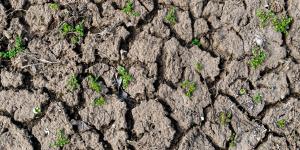
Beneath our feet lies one of Earth's most precious yet often overlooked resources: soil. This thin layer of earth sustains life as we know it, supporting everything from the food we grow to the diverse ecosystems that maintain our planet's health. However, this vital resource faces increasing threats from...

Aquifers are underground water systems that store and transport groundwater through layers of rock and sediment. These natural reservoirs have shaped human civilization since ancient times, when communities first dug wells to access water. Today, cities and farms worldwide still depend on aquifers for...
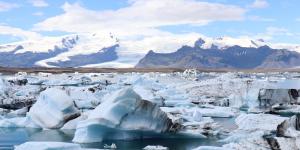
Earth's polar ice caps are massive frozen formations that shape our planet's climate and ecosystems. These vast sheets of ice, found in the Arctic and Antarctic, play crucial roles in regulating global temperature, sea levels, and ocean currents. Understanding how they form, where they exist, and how...

Environmental factors are the building blocks that shape life on Earth, determining how organisms survive, adapt, and interact within their ecosystems. From the physical and chemical conditions that create habitats to the complex web of relationships between living things, these factors work together...

What makes ecosystems thrive and function? Understanding the difference between biotic and abiotic factors is essential for grasping how ecosystems function. Biotic factors encompass all living organisms and their interactions, while abiotic factors comprise the non-living physical and chemical components of...

The environment encompasses all the living and non-living things around us, forming the natural world that supports life on Earth. It includes everything from the air we breathe and the water we drink to the forests, oceans, and countless ecosystems that maintain the planet's balance. Each part of the...

Also known as a udometer, hyetometer or, most commonly, a rain gauge, a pluviometer is used to measure the amount of liquid precipitation which falls in a specific location during a given period. This liquid precipitation is mostly in the form of rain. knowing rainfall measurements is of great importance...

An anemometer is an instrument used to measure wind speed. This device is essential in various fields such as meteorology, aviation, energy production, navigation and even certain outdoor sports. Its operation varies depending on the type, but all models collect key information to analyze wind intensity....

An altimeter is a device that measures altitude, meaning the vertical distance between a given point and certain fixed level. In most practical uses, this fixed level is sea level. Its use is essential in various activities such as aviation, mountaineering and outdoor sports. In these capacities, accurate...

Total Dissolved Solids (TDS) refer to the combined content of all inorganic and organic substances, including minerals, salts, metals, and other compounds, dissolved in a liquid—usually water. These particles are so small that they pass through a typical water filter, distinguishing them from suspended solids...

A barometer is an instrument used to measure atmospheric pressure, a fundamental metric for predicting changes in the weather. While they may be less common in homes than they once were, barometers are still vital pieces of equipment to help assess atmospheric conditions. In this article from thedailyECO,...

The various types of global climates are categorized by different factors and systems. These can be dependent on their ecosystem type, location, altitude and other determinants. The continental climate is a category of climate which is determined by the Köppen climate classification. This is a system based...

A mountain climate is the localized climate of a mountainous area. Due to the greater altitude, the atmospheric conditions are altered, resulting in lower temperatures and significant climate variability. Temperature and precipitation patterns change significantly at different altitudes. For this reason,...

Atmospheric pressure, the force exerted by the weight of the air above us, plays a crucial role in weather patterns, aviation, and even our daily lives. Measuring this pressure helps scientists and meteorologists predict weather changes and understand atmospheric behavior. But how exactly is atmospheric...

The Earth's atmosphere is in constant motion, driven by the uneven heating of the planet's surface by the sun. This dynamic movement, known as general atmospheric circulation, shapes global wind patterns, influences climate zones, and affects weather systems around the world. Understanding these circulation...

Hot springs can be found all around the world, with notable concentrations in Latin American countries, as well as in Europe and Asia. These natural formations are popular tourist attractions due to the numerous health benefits they offer. he warm, soothing waters of hot springs help to relax both the...

Examining the concept of an endorheic basin is important for understanding how water is distributed and used in different regions of the world. This is very important for geographical and hydrological studies. An endorheic basin is defined as a region in which rainwater and river water have no outlet to...

Bodies of water, ranging from expansive oceans to winding streams, are crucial elements of our planet. They are categorized by their size, origin, and physical properties, and play a fundamental role in sustaining life on Earth. These bodies of water are integral to ecological health, human well-being, and...

Monsoon climates are characterized by distinct wet and dry seasons driven by seasonal wind shifts. This climatic pattern is prevalent in regions near the equator, particularly in South Asia, Southeast Asia, West Africa, and parts of Australia. Monsoon climates have a profound impact on agriculture, as the...

Hydrology is the scientific discipline that studies the water cycle on Earth, including its distribution and movement, as well as its physical and chemical properties. This discipline covers the analysis of precipitation, water runoff, soil infiltration, river currents, aquifer recharge, evaporation and...

Hydrography is the science responsible for the study and mapping of the Earth's bodies of water, both above and below the Earth's surface. This science provides essential data for navigation, resource management and prevention of natural disasters. Its findings are not only used by experts, but it helps...

Air might seem like a simple, invisible blanket around our planet, but it's actually a fascinating mix of gases that play a crucial role in keeping us alive and shaping the Earth. Mostly made up of nitrogen and oxygen, air is not just essential for breathing; it also helps regulate temperature, protects...

For millennia, humanity has cast its nets into the ocean's bounty. Early fishing practices were small-scale and focused on meeting immediate needs. However, with population growth and technological advancements, the impact on fish stocks became increasingly evident. In this sense, the Industrial Revolution...

The threat of desertification to ecosystems, livelihoods, and food security is one of the most pressing environmental challenges of our time. During this process, fertile lands are transformed into arid, unproductive terrain, largely due to climate change and unsustainable human activities such as deforestation,...

Unlike car exhaust fumes that dissipate quickly, ozone is a hidden danger lurking in our air. This gas isn't directly emitted, but rather forms when pollutants react under specific conditions, like sunshine. The result? Ozone, which can travel long distances and pose a significant health risk. According...

The climate of a certain area is its long-term weather patterns which are established over time, as opposed to weather which changes regularly. Desert climate is the long-term weather patterns of desert areas, geographical ranges which are defined by having little precipitation and subsequent harsh living...

There are various different types of watercourse, meaning the way in which water flows through a channel of land. This manner in which the water flows is a stream, but this definition can be complicated by the fact there are many different types of channels through which water can flow. For example, we may...

The study of bioclimates is essential to understanding the distribution of climatic conditions on Earth. A bioclimate is the set of climatic conditions that determine the type of flora and fauna which can survive in a given geographical area. It is this geographical area which we can refer to as a bioclimatic...

The ocean depths hold some of the most enigmatic and unexplored landscapes on Earth. Among these mysteries lie the abyssal plains, vast underwater stretches cloaked in eternal darkness and immense pressure. These regions, far from the reach of sunlight, have long remained a source of fascination and intrigue...
